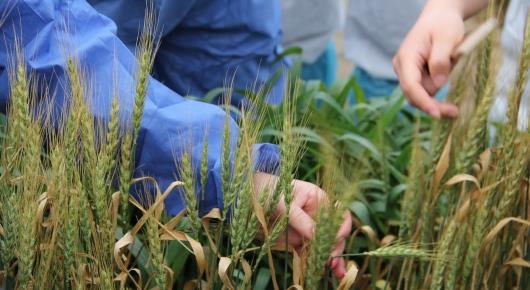Plant health knows no borders: 20 countries discuss international standards

Plant health and safety standards are indispensable. They ease safe international trade, help ensure food security, promote sustainable agriculture production, and help protect biodiversity and the environment.
The primary guardians of plant health and safety are the International Plant Protection Convention (IPPC) and International Standards for Phytosanitary Measures.
This week near Moscow, FAO and the Convention’s Secretariat have brought together experts from 20 countries and several international organizations for an intense six-day workshop to discuss potential changes to the international standards for phytosanitary measures. The experts also hope to deepen their knowledge of phytosanitary issues and learn how to produce national pest reports.
“International safe trade can only function if partners strive for plants and plant products to be free of pests,” said Piotr Wlodarczyk, FAO agricultural officer.
He noted that minimizing pests requires proper legislation, institutional knowledge, pest-free planting materials, and functioning systems for pest monitoring and forecasting.
“It is also very important that importing and exporting countries follow harmonized procedures, described in international standards,” he added. “This week’s meeting is aimed at learning more on these standards.”
The aim of the Convention and the international standards is to prevent the introduction and spread of plant pests that have a negative impact on plants, both cultivated and wild.
Improving the implementation of these standards with regard to the international movement of seeds will be one focus at the workshop. Other topics include links between plant health and environmental protection (with a focus on invasive alien plants), management of risks arising from sea containers, and “ePhyto” – the newly developed global system for the issuance and exchange of electronic phytosanitary certificates.
FAO provides support on the implementation of the Convention. At the workshop, Wlodarczyk presented seven of FAO’s country-level projects and one of its regional-level projects on phytosanitary issues.
“Each region has its own specificities,” he said. “Within that, countries face all kinds of different challenges: from grape phylloxera in Armenia and inspection and diagnostic services in Azerbaijan to the question of monitoring in Georgia and the protection of seed and plant varieties in Uzbekistan.”
Regional events like this offer opportunities for countries to detect commonalities and to share good ideas and experiences that will help in handling issues.
The meeting is part of a series of regional workshops being delivered in seven regions across the globe, organized by the IPPC Secretariat in collaboration with FAO and various international and regional organizations.
3 September 2018, Bykovo, Russian Federation
